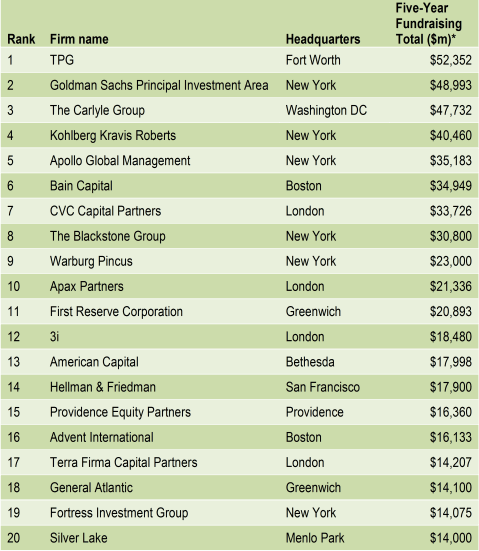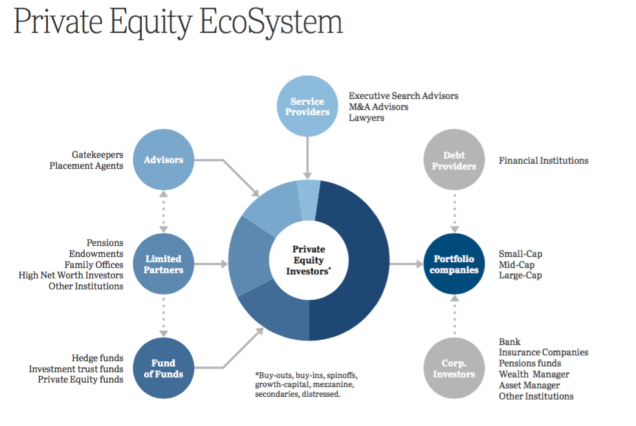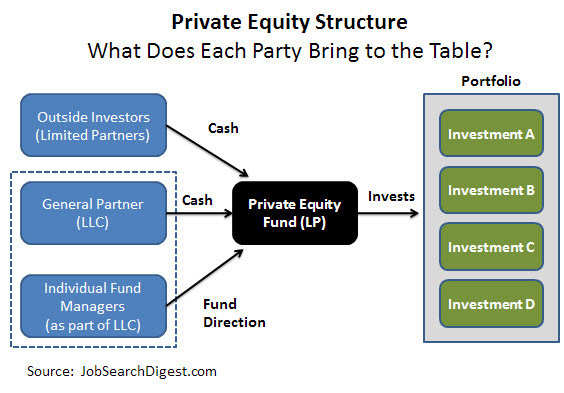Private Equity Software & Solutions, Built For PE Investors
Getting into private equity straight after an MBA is nearly difficult unless you have actually done financial investment banking or private equity before the MBA. You might finish the MBA, utilize it to win a full-time investment banking task, and after that recruit for private equity functions, however that’s far more challenging than breaking in pre-MBA from investment banking.
Leading qualifications (grades, test scores, and university reputation); A great deal of and interview preparation; Something that makes you appear to be a human rather than a robotic; The capability to about business and financial investments rather than just “selling” them. A strong with the firm PE companies are much smaller than banks, so “fit” and soft abilities are much more crucial.
Like financial investment banks, Private Equity companies generally have a fairly stiff seniority structure with huge distinctions in experience level and obligations from leading to bottom. In basic the senior-most specialists are accountable for deal sourcing, relationship management, and investment decision making, while the junior-most professionals bring the force of the analytical work.
This is, at least in part, because Private Equity companies tend to be much smaller than investment banking departments at significant banks. As an outcome, junior experts will tend to have far more interaction with senior specialists, fostering far more chance to work straight with and learn directly from the most experienced experts in the firm.
The associate handles the majority of the financial modeling and preliminary due diligence for financial investment opportunities, while assisting with the management and tracking of portfolio companies in addition to sourcing offers and supporting deals. More day-to-day information on the associate’s role are supplied later on in this guide. A majority of Pre-MBA associates (especially in the US) are worked with for a two-year to three-year program. (Such a change would be quickened if the United States and other governments followed the lead of European nations in leveling the tax playing field.) Public companies could then gain from the opportunities afforded by a buy-to-sell method. Investors would benefit, too, as the greater competitors in this area would create a more efficient marketone in which private equity partners were no longer so strongly preferred over the investors in their funds.

You’ve probably heard of the term private equity (PE). Roughly $3.9 trillion in possessions were held by private equity companies as of 2019, and that was up 12.2 percent from the year before. Investors look for private equity funds to earn returns that are much better than what can achieved in public equity markets. https://www.youtube.com/embed/WhJVIagxxwk
Keep reading to learn more about private equity including how it develops worth and a few of its key techniques. Private equity refers to capital investment made into business that are not publicly traded. A lot of private equity firms are open to certified investors or those who are deemed high-net-worth, and successful private equity supervisors can earn countless dollars a year.
What Do Private Equity Investors Actually Do?
Private equity is ownership or interest in an entity that is not publicly listed or traded. A source of financial investment capital, private equity originates from high-net-worth individuals and companies that buy stakes in private companies or acquire control of public companies with plans to take them private, eventually delisting them from stock exchanges (business partner grant).


Since private equity entails direct investmentoften to acquire impact or control over a company’s operationsa considerable capital expense is needed, which is why funds with deep pockets dominate the industry. The minimum quantity of capital needed for recognized investors can differ depending on the firm and fund. Some funds have a $250,000 minimum entry requirement, while others can need millions more.
Partners at private-equity firms raise funds and handle these cash to yield favorable returns for investors, usually with an investment horizon of in between four and 7 years. The private equity business brings in the very best and brightest in business America, including top performers from Fortune 500 companies and elite management consulting companies.
The charge structure for private-equity companies varies but typically includes a management and efficiency charge. A yearly management cost of 2% of assets and 20% of gross profits upon sale of the business is typical, though incentive structures can vary considerably (state prosecutors mislead). Considered that a private-equity firm with $1 billion of possessions under management (AUM) might have no more than 2 lots financial investment experts, which 20% of gross revenues can produce 10s of millions of dollars in fees, it is simple to see why the market brings in top skill.

Principals, on the other hand, can earn more than $1 million in (understood and unrealized) payment annually. Private-equity firms have a variety of investment preferences. Some are stringent financiers or passive investors completely based on management to grow the business and create returns. Because sellers typically see this as a commoditized technique, other private-equity companies consider themselves active investors.
Active private equity companies may have a substantial contact list and C-level relationships, such as CEOs and CFOs within a provided industry, which can assist increase income. They may also be specialists in realizing operational performances and synergies. If an investor can generate something special to a deal that will enhance the business’s value in time, they are more most likely to be viewed favorably by sellers.
It is no surprise that the biggest investment-banking entities such as Goldman Sachs (GS), JPMorgan Chase (JPM) and Citigroup (C) frequently help with the largest deals – grant carter obtained. In the case of private-equity firms, the funds they offer are only available to certified investors and may just permit a restricted variety of investors, while the fund’s creators will frequently take a rather large stake in the firm too.
The Pros And Cons Of Having Private Equity Firms Invest In
For circumstances, the Blackstone Group (BX) trades on the New York Stock Exchange (NYSE) and has actually been included in the buyouts of business such as Hilton Hotels and MagicLab. Private-equity firms carry out 2 vital functions: deal origination/ deal executionportfolio oversight Deal origination includes creating, maintaining and establishing relationships with mergers and acquisitions (M&A) intermediaries, financial investment banks, and comparable deal specialists to secure both high-quantity and top quality deal flow.
Some companies hire internal personnel to proactively recognize and reach out to company owners to generate deal leads. tysdal business partner. In a competitive M&A landscape, sourcing exclusive offers can help make sure that funds raised are effectively released and invested. Additionally, internal sourcing efforts can lower transaction-related costs by cutting out the financial investment banking middleman’s charges.
As such, offer origination specialists try to establish a strong connection with deal experts to get an early intro to an offer. It is important to keep in mind that financial investment banks typically raise their own funds, and for that reason might not only be a deal referral, however likewise a contending bidder. Simply put, some financial investment banks take on private-equity firms in buying up excellent business.


Specific funds can have their own timelines, financial investment objectives, and management viewpoints that separate them from other funds held within the exact same, overarching management firm. Effective private equity companies will raise many funds over their lifetime, and as companies grow in size and complexity, their funds can grow in frequency, scale and even uniqueness. To find out more about business partner and also - visit the websites and -.
Prior to founding Freedom Factory, Tyler Tysdal managed a growth equity fund in association with numerous celebs in sports and entertainment. Portfolio company Leesa.com grew rapidly to over $100 million in earnings and has a visionary social mission to “end bedlessness” by donating one mattress for every single ten sold, with over 35,000 contributions now made. Some other portfolio business were in the industries of wine importing, specialty financing and software-as-services digital signs. In parallel to managing possessions for organisations, Ty was handling personal equity in real estate. He has had a variety of effective private equity financial investments and numerous exits in student real estate, multi-unit housing, and hotels in Manhattan and Seattle.
After the financial investment committee indications off to pursue a target acquisition prospect, the deal specialists send an offer to the seller. If both parties choose to move on, the offer experts deal with various deal advisors to consist of investment bankers, accounting professionals, attorneys and experts to carry out the due diligence stage.
This part of the procedure is crucial, as consultants can reveal deal-killers, such as considerable and previously undisclosed liabilities and threats. There are a lot of private equity investment techniques – loans athletes sports. Two of the most typical are leveraged buyouts and equity capital financial investments. Leveraged buyouts are exactly how they sound. A target firm is bought out by a private equity firm.
The acquirer (the PE firm) seeks to purchase the target with funds acquired through the use of the target as a sort of security. In a leveraged buyout, obtaining PE companies are able to purchase business with just needing to put up a fraction of the purchase rate. tysdal lone tree. By leveraging the financial investment, PE companies aim to optimize their prospective return.
PE firms will frequently see that prospective exists in the market and more significantly the target firm itself, and often due to the lack of incomes, capital and financial obligation funding readily available to the target. fraud theft tens. Companies are able to take significant stakes in such companies in the hopes that the target will develop into a powerhouse in its growing industry.
Coronavirus’s Impact On Private Equity
Oversight and management comprise the 2nd crucial function of PE specialists. Amongst other assistance work, they can walk a young company’s executive staff through best practices in strategic preparation and monetary management. Furthermore, they can assist institutionalise brand-new accounting, procurement, and IT systems to increase the worth of their investment.